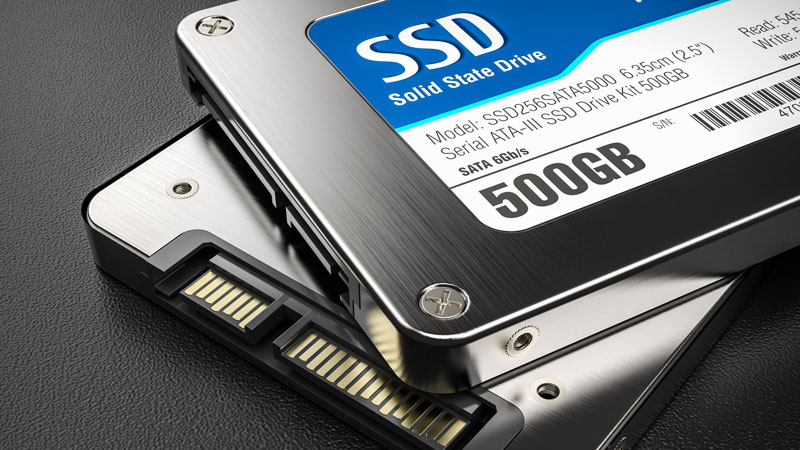SSD Web Hosting: Do SSD Drives Really Improve Speeds?
And if so, how much?

One of the latest trends sweeping through the web hosting industry is SSD (Solid State Drives) Web Hosting. Unlike traditional web hosting which stores web files on HDD (hard disk drives), HHD web hosting stores the files on SSD Drives. As well as security and reliability, the growing popularity of SSD web hosting comes from claims that it is super fast. The ultimate question is: do SSD drives really improve speeds? To answer this question, it is necessary to understand the origin of SSD Drives.
Solid State Drives are storage devices which originated in the military and aeronautical fields. They were specifically designed to ensure super-fast I/O of large quantities of data within short time periods. Internally, they use integrated circuit assemblies to store data. Until fairly recently, they have been reserved for military, aeronautical and medical uses. However, PC manufacturers have begun integrating them into servers, hence their emergence into the web hosting industry.
SSDs are designed to maximize system performance. As such, it is much faster to read data from SSDs than it is from HDDs. One of the reasons for this simplicity lies in the mechanics. An HDD drive is built with internal moving parts. To read data, the internal parts have to spin in order to locate a piece of data. When thousands or millions of data have to be located, this constant spinning can be time consuming. An SSD drive on the other hand is built sort of like a flash drive, accessing data is instantaneous and therefore much faster than reading it from an HDD.
When used by a webhost, SSD drives greatly improve the loading speed of a website. There are documented cases of websites loading at speeds of up to 6.0 Gb/s. For a website user, this means faster loading of pages, and faster response time. Some estimates place an improvement of up to 300% when a web host changes from an HDD to an SSD drive. This of course makes for a greater user experience and this is the primary reason why SSD web hosting services are becoming increasingly popular.
The improved speeds are especially visible for a website which has lots of heavy files such as videos, audio or flash images. The upload time increases significantly, and the response time is almost instantaneous. This has made SSD web hosting the holy grail for websites which offer services like video streaming and online video games. The super-fast upload speeds as well as improved response rates means that web users can have a richer experience.
The improved speeds also mean that websites on servers with SSD drives can handle greater traffic without getting overwhelmed. This is because SSD drives maximize system performance, meaning that a server can service more queries. Therefore, the usual freezing or shutting down as a result of too many requests which is common with HDD servers is unlikely to happen with SSD servers.
In a nutshell, the arrival of SSD web hosting is perhaps one of the most important milestones of recent times. It means that programmers can design complex, exciting and cool web applications without worrying about upload speeds. It also means that users can enjoy a richer and more interactive web experience. This is all thanks to the much improved speeds brought about by SSD Drives.
SSDs are designed to maximize system performance. As such, it is much faster to read data from SSDs than it is from HDDs. One of the reasons for this simplicity lies in the mechanics. An HDD drive is built with internal moving parts. To read data, the internal parts have to spin in order to locate a piece of data. When thousands or millions of data have to be located, this constant spinning can be time consuming. An SSD drive on the other hand is built sort of like a flash drive, accessing data is instantaneous and therefore much faster than reading it from an HDD.
When used by a webhost, SSD drives greatly improve the loading speed of a website. There are documented cases of websites loading at speeds of up to 6.0 Gb/s. For a website user, this means faster loading of pages, and faster response time. Some estimates place an improvement of up to 300% when a web host changes from an HDD to an SSD drive. This of course makes for a greater user experience and this is the primary reason why SSD web hosting services are becoming increasingly popular.
The improved speeds are especially visible for a website which has lots of heavy files such as videos, audio or flash images. The upload time increases significantly, and the response time is almost instantaneous. This has made SSD web hosting the holy grail for websites which offer services like video streaming and online video games. The super-fast upload speeds as well as improved response rates means that web users can have a richer experience.
The improved speeds also mean that websites on servers with SSD drives can handle greater traffic without getting overwhelmed. This is because SSD drives maximize system performance, meaning that a server can service more queries. Therefore, the usual freezing or shutting down as a result of too many requests which is common with HDD servers is unlikely to happen with SSD servers.
In a nutshell, the arrival of SSD web hosting is perhaps one of the most important milestones of recent times. It means that programmers can design complex, exciting and cool web applications without worrying about upload speeds. It also means that users can enjoy a richer and more interactive web experience. This is all thanks to the much improved speeds brought about by SSD Drives.
